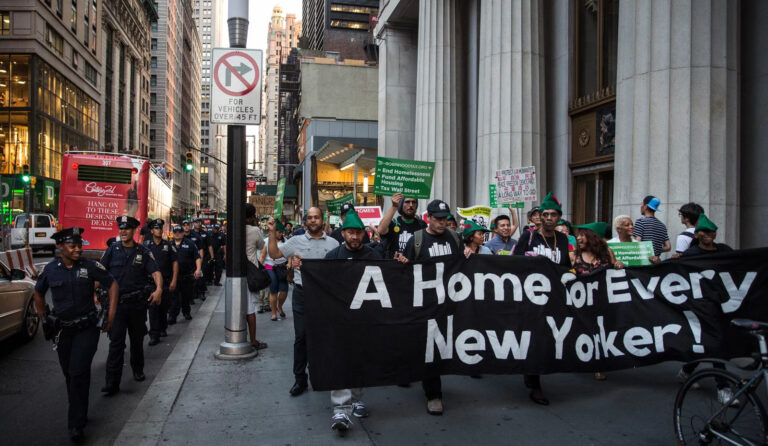
In recent weeks, a whirlwind of controversy and allegations have swirled around Governor Andrew Cuomo, the Governor of New York for the past decade. Cuomo is facing, as of writing, an alleged cover-up of COVID-19 deaths in nursing homes, sexual harassment and assualt allegations from a considerable number of women, and allegations of bias in COVID-19 testing in the early phases of the virus. A new impeachment inquiry has been launched by the New York State Assembly to investigate the claims, New York Attorney General Letitia James has started her own investigation into the claims, and dozens of lawmakers and politicians have called for Cuomo’s resignation. The call has been bipartisan, with notable Democrats in the Senate, House, State Senate, and State Assembly joining together in this matter with Republicans in the House, State Senate, and State Assembly.
In response to the calls for resignation, Cuomo held a conference in which he referred to a potential resignation as “bowing to cancel culture,” and where the son of a previous three-term Governor claimed that the reason he was facing these calls to resign was because he was “not part of the political club.” The language, especially the reference to “cancel culture,” was more typical of Republicans, who have discovered a particular taste for decrying “cancel culture” at every turn.
To many Democrats who have not had an eye on New York politics, this saga may have come as a surprise. In the early phases of the pandemic, Cuomo created an image of himself as a direct foil to President Donald Trump. While Trump stumbled in his press conferences and messaging on COVID-19, needlessly casting doubts on the efficacy of masks and suggesting that injecting bleach would be a potential cure, Cuomo held composed press conferences in which he described updates in detail. In the face of chaos from the White House, Cuomo was the so-called “anti-Trump” — pro-mask, pro-science, and a calming influence. To many, it was a welcome and desperately needed display of competent leadership in face of one of the most traumatic events of our lifetimes. People even began referring to themselves as “Cuomosexual,” a term embraced by Cuomo himself in a move that looks particularly bad in hindsight, knowing the allegations that plague him today.
To those who have been looking at New York politics for a while, however, Cuomo has never been the image of the calm, composed leader that he projected during the pandemic. In an New York Magazine article titled “Abuse and Power,” Rebecca Traister took a deep dive into Cuomo and his governorship. She didn’t only stick to the serious and disturbing sexual harassment allegations, but investigated how Cuomo, dating back years, had “fostered a culture that supported harassment, cruelty, and deception.” I’d encourage all to read Traister’s article in full, as no summary can do it justice. A key takeaway from her article, though, is that it was Cuomo himself and his habits — his preference of political theater over governing, his habit of screaming at staff, his pattern of hiring women solely because he found them attractive, and his pervasive toxic masculinity — that caused the workplace of the Governor’s office to be unbearable.
In the past four years, Trump has dominated much of the political landscape. His chaotic and antagonistic governing style, his racist views, his history of misogynist comments, and the numerous rape and sexual misconduct allegations levied against him have often — and correctly — been emphasized by Democrats. But one potential side-effect of this is, perhaps, the creation of an unintentional blindspot in the view of Democrats. Not all abusive men in power look like Trump. Some of them, like Cuomo, drape themselves in feminist language and, as Traister put it, keep a “phalanx of senior women” in their staff and use a “defensive feminist shield” to fend off detractors from within their own parties. That defensive shield can perhaps be seen best when Cuomo’s top aide, Melissa DeRosa, took to Twitter to use Cuomo’s approval rating amongst women as a defensive against sexual harassment allegations — as if that decried any of what Cuomo is being accused of.
The outpouring of Democratic support for the women who went public with their allegations, seen in the widespread calls for Cuomo to resign, is thankfully encouraging. While some online point to the GOP’s refusal to hold Trump accountable and the GOP’s refusal to investigate sexual harassment allegations against their own as reasons that the Democrats should do the same and not press Cuomo, the exact opposite is what is needed. Cuomo, his accusers, and the reality of his workplace are all a stark reminder that powerful, toxic men are not solely partisan – they can have a D or a R next to their name. Regardless of the GOP’s willingness to hold themselves accountable, Democrats must not lower themselves to those standards. In order to continue being productive allies, Democrats must police their own and call out bad behavior amongst their own ranks no matter who is doing that behavior. The fact that it took this long for Democrats to police Cuomo — with Cuomo even teasing a 2020 presidential run at one point — should be a poignant and direct reminder of the necessity of this practice, and should not be forgotten.



